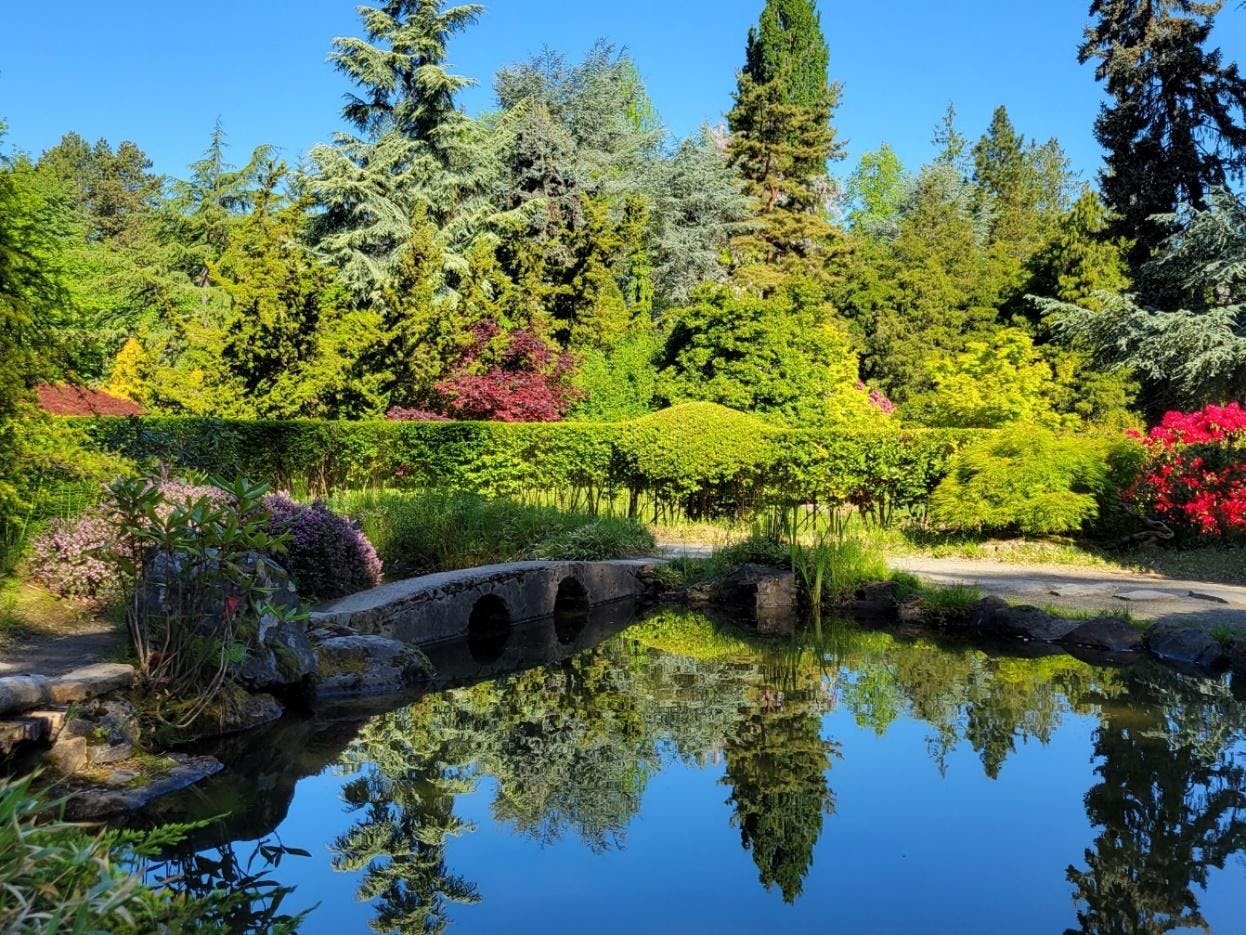There is something wondrous about walking through a park with water, trees, gardens and more on display within one footprint. The benefits and pure joy provided by the array of parks, trails and picnic areas are priceless – especially when living in a bustling city like Seattle.
The aptly named Emerald City has dedicated about 7% of its total landmass to parks, highlighting a strong commitment to green spaces for all to enjoy. While everyone has a favorite park (including my top five), one rises above the rest for its boundless beauty: Kubota Garden.
Kubota Garden is a stunning 20-acre landscape that blends Japanese garden concepts with native Northwest plants. Its story is equally impressive.
Established in 1927 in South Seattle by Fujitaro Kubota, a Japanese immigrant and self-taught gardener, Kubota Garden showcases the beauty of Japanese landscaping, featuring streams, waterfalls, ponds, rock outcroppings and a variety of tree and plant species.
Few places in the city offer such a satisfying blend of colors, fragrant smells, and the gentle murmur of water, all combining to alleviate the stress and strains of daily urban life. These elements harmoniously integrate with the native plants and rugged terrain of the Pacific Northwest.
The garden is home to Japanese maples, azaleas, rhododendrons and a collection of conifers, providing seasonal color for many months. It includes two footbridges, the Necklace of Ponds area, aquatic plants and wildlife, stone benches and a terrace overlook – serene spaces year-round.
Kubota emigrated to Seattle from Japan in 1907, established a gardening business and then purchased five acres of land for his project. With his own hands, he cleared the land, dug ponds, and cut trees to create the foundation of what would become his namesake garden. In 1962, the Kubota family commemorated the Seattle World’s Fair with a memorial stone atop a feature called Mountainside.
Kubota and his family were interned in camps during World War II because of their Japanese heritage. Despite this, Kubota’s dedication to his garden endured and he resumed its development after the war.
In 1981, the city acquired Kubota Garden to preserve it as a public park. Since then, it has been maintained and expanded, with ongoing efforts to preserve its historical integrity and beauty.
The garden is open to the public year-round, offering a peaceful retreat for visitors looking to experience its tranquil beauty. It hosts events, guided tours and educational programs that help visitors learn about Japanese gardening traditions and the garden’s unique history.
Open year-round, Kubota Garden offers a peaceful retreat for visitors seeking tranquil beauty. It hosts events, guided tours and educational programs that help visitors learn about Japanese gardening traditions and the garden’s unique history.
Kubota Garden is not only a beautiful and serene place but also a testament to the cultural heritage and contributions of Japanese Americans. Nearly a century old, the garden stands as a symbol of resilience and creativity, celebrating the harmony between human artistry and nature.




